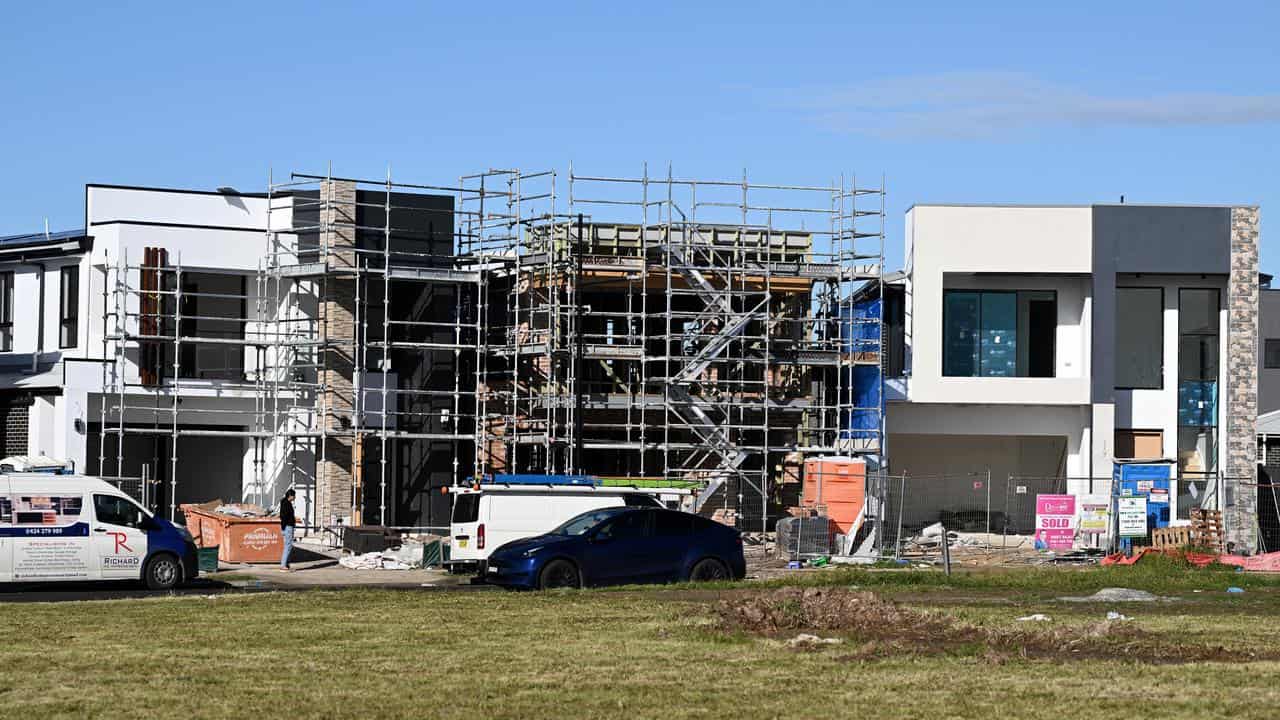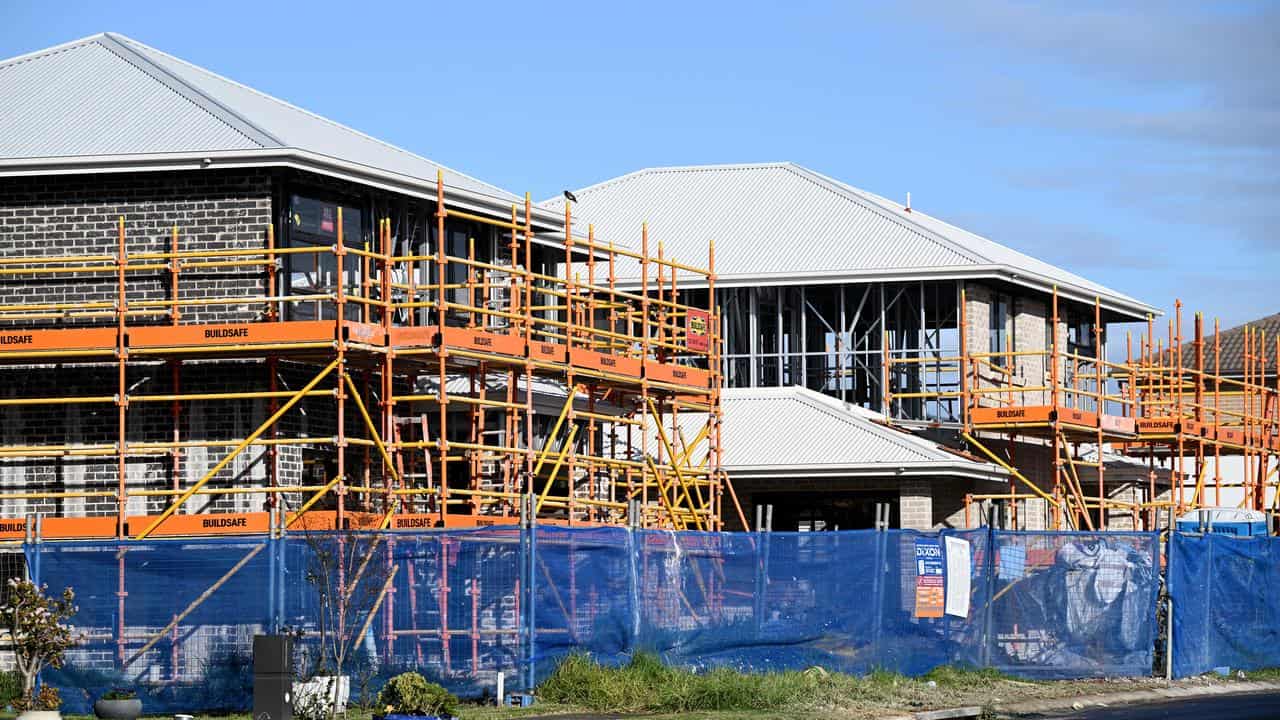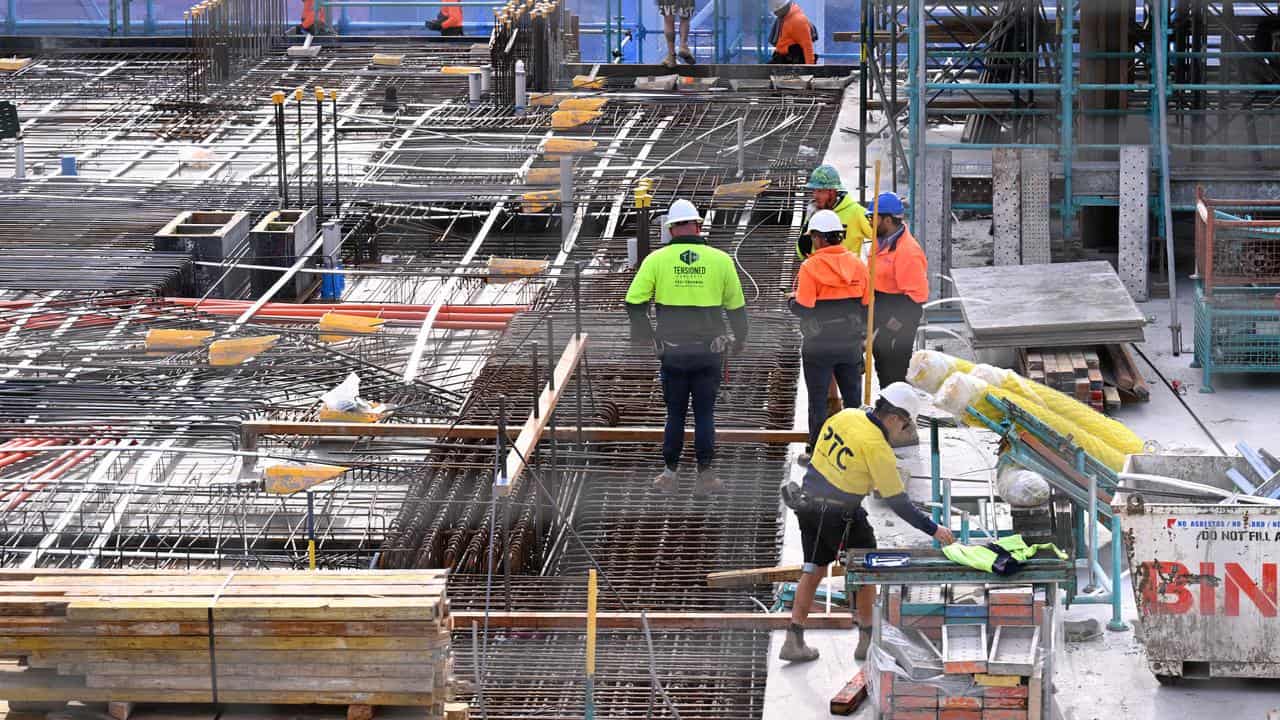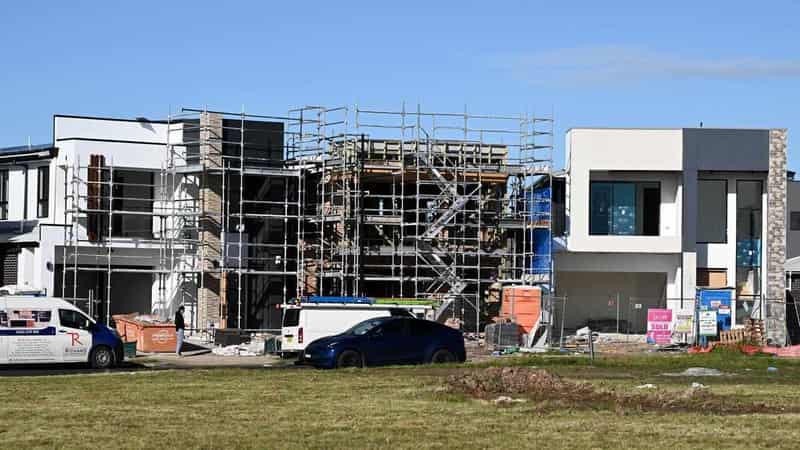
In the 1960s, development applications could be one page long, housing advocates say.
Now, documents that run to reams of pages are spending months collecting dust on NSW bureaucrats' desks, sending waiting times for much-needed homes skyrocketing.
Premier Chris Minns has promised another tranche of planning reforms to help fix the housing crisis, particularly in Sydney - the nation's most expensive property market.
"(The reforms) will be designed to speed up approvals, cut red tape and, at the end of the day, build more homes," he said at a Business Western Sydney Housing Now conference on Wednesday.
The premier acknowledged it was often government agencies that slowed down the approvals process.

"Once you run the gauntlet of planning, you're left waiting for transport for NSW, or Sydney Water or local government ... this can't sit on public-service desks for months on end, waiting for a decision with the cost of construction," he said.
The state has been warned that it is unlikely to meet its nationally agreed, five-year housing target of 377,000 extra homes by 2029.
A NSW Productivity and Equality Commission report, released on Wednesday, made several recommendations to boost housing supply, including zoning well-located areas for higher density and cutting apartment design requirements.
Developers were joined at the conference by members of the Yes in My Backyard (YIMBY) advocacy group, whose representative Justin Simon also blamed red tape for delaying housing builds.
He brandished a one-page document representing the amount of detail he said was needed for a development application in the 1960s.
"When we're looking at what the housing boom was in the 60s and 70s ... if we want to get close to that, what are we going to cut?" he said.
"Unless we want everyone in the state to become a planner and arborist, a heritage consultant and an engineer ... do we need all these reports?"

One of the government's signature planning policies involves the blanket rezoning of land around metro stations and existing transport hubs for higher-density housing.
The commission said further gains could be made from expanding that program into Sydney's well-established eastern and northern suburbs.
Mr Minns said that would likely be a few years down the line but he was "happy to do it".
Master Builders Australia recently projected NSW would fall the furthest behind meeting its contribution to a national goal of 1.2 million extra homes by mid-2029.
NSW is only on track to produce 303,280 homes - 73,700 homes short of its target.
Mr Minns said NSW wouldn't back away from the challenge of building the thousands of homes required to stop young people being locked out of the housing market.
"Doing nothing is not an option,” he said.
In February, NSW Productivity Commissioner Peter Achterstraat said Sydney was on track to be "the city with no grandchildren" as height restrictions and high housing costs drove young families to the regions and interstate.









